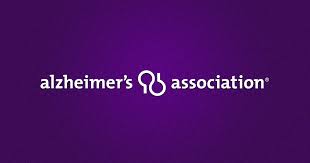
INDIANA – During National Family Caregivers and National Alzheimer’s Disease Awareness Month in November, the Alzheimer’s Association is highlighting six essential terms that are important for Alzheimer’s and dementia caregivers to know. Currently, there are more than 216,000 caregivers in Indiana providing care to more than 110,000 living with Alzheimer’s.

“Nearly half of all caregivers who provide help to older adults do so for someone with Alzheimer’s or another dementia,” said Natalie Sutton, executive director, of Alzheimer’s Association Greater Indiana Chapter. “There are six essential terms that are commonly used by professional dementia caregivers that we think family caregivers should understand as well. These terms can help empower family caregivers during their journey caring for a loved one living with the disease.”
Six Essential Terms Alzheimer’s and Dementia Caregivers Need to Know
- Person-centered care – Most often associated with professional caregivers in long-term care settings, person-centered care offers important guidance for family caregivers as well. It requires understanding the world from the perspective of the individual living with dementia. It encourages caregivers to take into account a person’s interests, abilities, history, and personality to inform interactions and care decisions.
- Dementia-related behaviors – The term is used to describe wide-ranging behavioral symptoms associated with Alzheimer’s and other dementia. While most people associate Alzheimer’s and dementia with memory loss due to changes in the brain, there are several other challenging behaviors that can accompany an Alzheimer’s or dementia diagnosis, including:
- Aggression and anger
- Anxiety and agitation
- Depression
- Sleep disturbances and sundowning
- Wandering
- Suspicions and delusions
Underlying medical conditions, environmental influences, and some medications can impact these behaviors or make them worse. The Alzheimer’s Association offers tips and strategies to help caregivers address these and other disease-related behaviors.
- Caregiver Burnout – Caring for someone living with Alzheimer’s or another dementia can be exhausting – mentally, physically, and emotionally. In fact, according to Alzheimer’s
Association2022 Alzheimer’s Disease Facts and Figures report, Alzheimer’s caregivers report experiencing higher levels of stress than non-dementia caregivers, including:
- 59% of Alzheimer’s caregivers report their emotional stress as high or very high (non-Alzheimer’s caregivers – 41%)
- 35% report declining health because of caregiving (non-Alzheimer’s caregivers – 19%)
- A recent national poll found that 27% of caregivers for people with dementia delayed or did not do things they should for their own health.
The Alzheimer’s Association offers a Caregiver Stress Check to help caregivers identify and avoid caregiver burnout.
- Respite Care – Respite care provides caregivers a temporary rest from caregiving, while the person living with Alzheimer’s continues to receive care in a safe environment. It can be provided at home — by a friend, another family member, a volunteer, or paid service — or in a care setting, such as adult day care or long-term care community. Using respite services can support and strengthen family members’ abilities to be a caregiver.
- Care Consultations – A care consultation can help family members work through tough decisions, anticipate future challenges, and develop an effective care plan. The Alzheimer’s Association offers free care consultations through its 24/7 Helpline (800.272.3900). During these consultations, master-level clinicians work with families to discuss wide-ranging, disease-related issues, including disease progression, care, and living options, and referrals to local support services.
In addition, Medicare covers care planning for individuals with cognitive impairment. Many family caregivers overlook or are not aware of this valuable benefit, which reimburses health professionals to provide affected individuals and their caregivers with information about medical and non-medical treatments, clinical trials, and support services available in the community — all of which can contribute to a higher quality of life. The Alzheimer’s Association encourages caregivers caring for someone covered by Medicare to ask their health provider about this important benefit.
- Treatment Pipeline – Currently, there are more than 100 disease-modifying Alzheimer’s treatments in clinical trials – researchers often refer to this as the treatment pipeline. Earlier this fall, positive topline results from phase 3 clinical trials for the treatment of early-stage Alzheimer’s disease were announced. These are the most encouraging results in clinical trials treating the underlying cause of Alzheimer’s to date.
While these new treatments will not provide a cure for Alzheimer’s and other dementia, the Alzheimer’s Association is hopeful these new treatments will address the underlying biology of the disease in new ways to help slow the progression of Alzheimer’s disease. This could mean more time for individuals to actively participate in daily life, have sustained independence, and hold on to memories longer. Alzheimer’s Association’s recent statement on the latest treatment.
Caregivers are encouraged to stay abreast of these and other potential treatments as they move forward. In addition, caregivers and individuals living with Alzheimer’s or other dementia can play an active role in helping advance potential new treatments by enrolling in a clinical trial.



